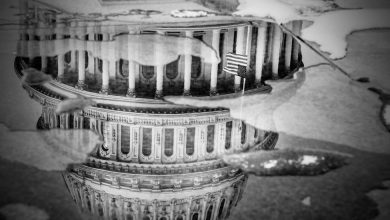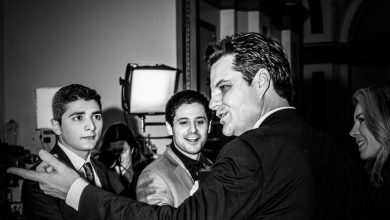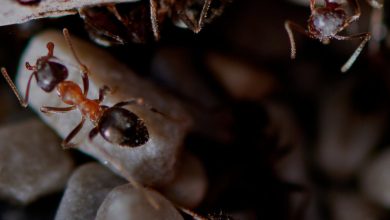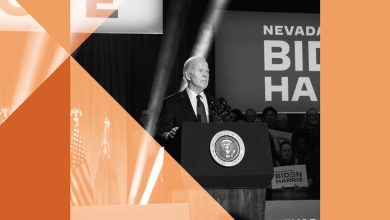Former Pence Chief of Staff Has Testified to the Jan. 6 Committee

WASHINGTON — Marc Short, who served as chief of staff to former Vice President Mike Pence, testified privately last week before the House committee investigating the Jan. 6 attack on the Capitol, the latest turn in weeks of negotiations between the panel’s investigators and Mr. Pence’s team.
Mr. Short appeared in response to a subpoena from the committee, according to three people with knowledge of the developments, making him the most senior person around Mr. Pence who is known to have cooperated in the inquiry.
Investigators believe that participation by the former vice president and his inner circle is critical, because Mr. Pence resisted a pressure campaign by former President Donald J. Trump to use his role in presiding over Congress’s official count of electoral votes to try to overturn the 2020 election.
Mr. Short was with Mr. Pence on Jan. 6 as a mob of Mr. Trump’s supporters attacked the Capitol, and has firsthand knowledge of the effort by Mr. Trump and his allies to try to persuade the former vice president to throw out legitimate electoral votes for Joseph R. Biden Jr. in favor of fake slates of pro-Trump electors.
The people spoke on condition of anonymity about Mr. Short’s testimony, which was earlier reported by CNN.
Investigators have been in high-stakes negotiations for months with Mr. Pence’s team about whether he would cooperate with the inquiry. In recent weeks, they have sought the cooperation of Mr. Short and Greg Jacob, Mr. Pence’s former lawyer.
Mr. Short and Mr. Jacob were both closely involved in Mr. Pence’s consideration of whether to go along with Mr. Trump’s insistence that he try to block the official count of Electoral College results by a joint session of Congress. Three days before the proceeding, the two men met with John Eastman, a lawyer then advising Mr. Trump, about a memo Mr. Eastman had written setting out a case for why Mr. Pence had the power to hold off the certification.
As a mob was attacking the Capitol chanting “Hang Mike Pence,” Mr. Eastman sent a hostile email to Mr. Jacob, blaming Mr. Pence for the violence.
“The ‘siege’ is because YOU and your boss did not do what was necessary to allow this to be aired in a public way so that the American people can see for themselves what happened,” the lawyer, Mr. Eastman, wrote to Mr. Jacob.
Mr. Eastman has since invoked his Fifth Amendment right against self-incrimination to defy the committee’s subpoena.
Key Figures in the Jan. 6 Inquiry
The House investigation. A select committee is scrutinizing the causes of the Jan. 6 riot at the U.S. Capitol, which occurred as Congress met to formalize Joe Biden’s election victory amid various efforts to overturn the results. Here are some key figures in the inquiry:
Donald Trump. The former president’s movement and communications on Jan. 6 appear to be a focus of the inquiry. While Mr. Trump has invoked executive privilege in an attempt to shield his records, the Supreme Court refused to block the release of the files.
Ivanka Trump. The daughter of the former president, who served as one of his senior advisers, has been asked to cooperate after the panel said it had gathered evidence that she had implored her father to call off the violence as his supporters stormed the Capitol.
Kevin McCarthy. The panel has requested an interview with the House Republican leader about his contact with Mr. Trump during the riot. The California representative, who could become speaker of the House after the midterms in November, has refused to cooperate.
Mark Meadows. Mr. Trump’s chief of staff, who initially provided the panel with a trove of documents that showed the extent of his role in the efforts to overturn the election, is now refusing to cooperate. The House voted to recommend holding Mr. Meadows in criminal contempt of Congress.
Rudolph Giuliani. The panel has subpoenaed Mr. Trump’s personal lawyer and three members of the legal team — Jenna Ellis, Sidney Powell and Boris Epshteyn — who pursued conspiracy-filled lawsuits that made claims of voter fraud in the 2020 election.
Mike Pence. The former vice president could be a key witness as the committee focuses on Mr. Trump’s responsibility for the riot and considers criminal referrals, but Mr. Pence reportedly has not decided whether to cooperate.
Marc Short. Mr. Pence’s chief of staff, who has firsthand knowledge of Mr. Trump’s pressure campaign on the vice president to throw out the election results, testified before the panel under subpoena. He is the most senior person around Mr. Pence who is known to have cooperated.
Scott Perry and Jim Jordan. The Republican representatives of Pennsylvania and Ohio are among a group of G.O.P. congressmen who were deeply involved in efforts to overturn the election. Both Mr. Perry and Mr. Jordan have refused to cooperate with the panel.
Fox News anchors. Texts between Sean Hannity and Trump officials in the days surrounding the riot illustrate the host’s unusually elevated role as an outside adviser. Mr. Hannity, along with Laura Ingraham and Brian Kilmeade, also texted Mr. Meadows as the riot unfolded.
Big Tech firms. The panel has criticized Alphabet, Meta, Reddit and Twitter for allowing extremism to spread on their platforms and saying they have failed to cooperate adequately with the inquiry. The committee has issued subpoenas to all four companies.
Fake Trump electors. The panel has issued subpoenas to 14 people who were part of bogus slates of electors for Mr. Trump in seven states won by President Biden: Arizona, Georgia, Michigan, New Mexico, Nevada, Pennsylvania and Wisconsin.
Far-right figures. White nationalist leaders and militia groups are being scrutinized as the panel’s focus intensifies on the rallies that led up to the mob violence and how those with extremist views worked with pro-Trump forces to undermine the election.
Roger Stone and Alex Jones. The panel’s interest in the political operative and the conspiracy theorist indicate that investigators are intent on learning the details of the planning and financing of rallies that drew Mr. Trump’s supporters to Washington based on his lies of a stolen election.
Steve Bannon. The former Trump aide has been charged with contempt of Congress for refusing to comply with a subpoena, claiming protection under executive privilege even though he was an outside adviser. His trial is scheduled for this summer.
Michael Flynn. Mr. Trump’s former national security adviser attended an Oval Office meeting on Dec. 18 in which participants discussed seizing voting machines and invoking certain national security emergency powers. Mr. Flynn has filed a lawsuit to block the panel’s subpoenas.
Phil Waldron. The retired Army colonel has been under scrutiny since a 38-page PowerPoint document he circulated on Capitol Hill was turned over to the panel by Mr. Meadows. The document contained extreme plans to overturn the election.
Jeffrey Clark. The little-known Justice Department official repeatedly pushed his colleagues to help Mr. Trump undo his loss. The panel has recommended that Mr. Clark be held in criminal contempt of Congress for refusing to cooperate.
John Eastman. The lawyer has been the subject of intense scrutiny since writing a memo that laid out how Mr. Trump could stay in power. Mr. Eastman was present at a meeting of Trump allies at the Willard Hotel that has become a prime focus of the panel.
Keith Kellogg, a retired lieutenant general who was Mr. Pence’s national security adviser, has also testified before the committee. Mr. Kellogg told investigators that as rioters stormed the Capitol on Jan. 6, Mr. Trump rejected pleas from him as well as from Mark Meadows, the White House chief of staff, and Kayleigh McEnany, the press secretary, to call for an end to the violence. He said Ivanka Trump, Mr. Trump’s eldest daughter and adviser, also attempted to intervene at least twice.
Mr. Kellogg said he and Ms. Trump also witnessed a telephone call in the Oval Office on the morning of Jan. 6 in which Mr. Trump pressured Mr. Pence to go along with a plan to throw out electoral votes. Mr. Kellogg told the committee that the president had accused Mr. Pence of not being “tough enough” to overturn the election.
Ms. Trump then turned to Mr. Kellogg and said, “Mike Pence is a good man,” Mr. Kellogg testified.
The developments come as Mr. Trump has continued to criticize Mr. Pence for refusing to embrace the call to overturn the 2020 election.
“Mike Pence did have the right to change the outcome, and they now want to take that right away,” Mr. Trump said in a statement, referring to a group of senators who are discussing revamping the Electoral Count Act to clarify that the vice president cannot unilaterally change the election results. “Unfortunately, he didn’t exercise that power, he could have overturned the election!”
Mr. Trump also said at a rally over the weekend that he might offer pardons to criminal defendants charged in connection with the Jan. 6 riot, and that he would organize more protests should he be charged with a crime.





